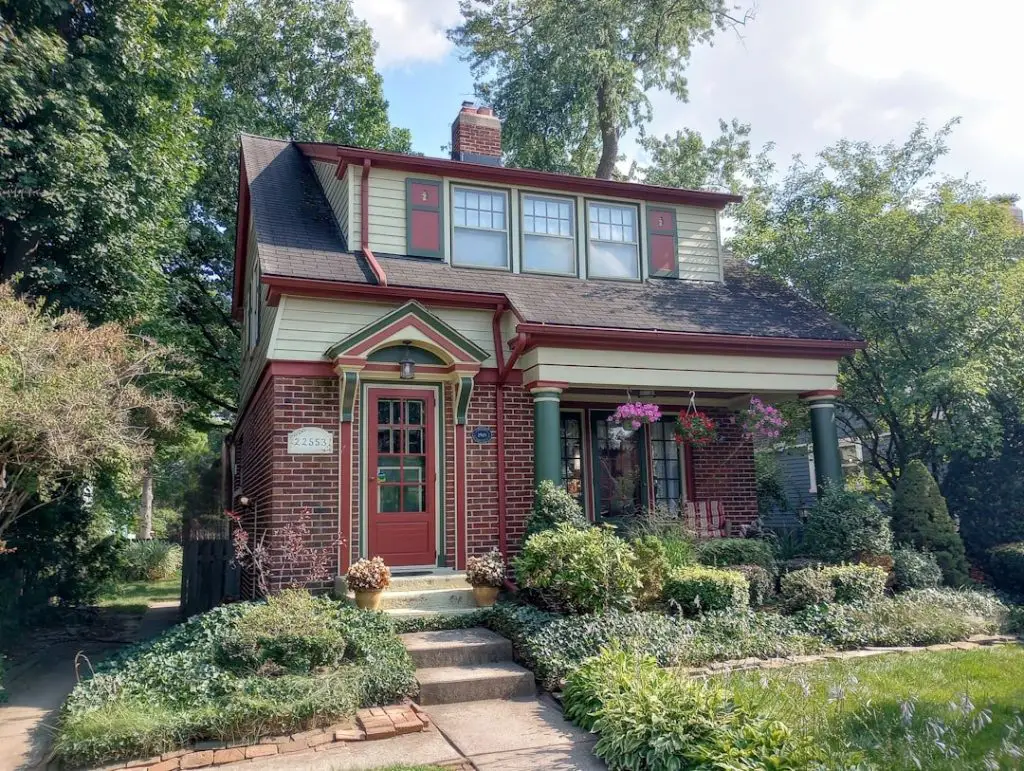Dealing with the loss of a loved one is overwhelming on its own. The last thing you want to think about is paperwork and bills. But the reality is, finances don’t stop, and you may be wondering what happens to a mortgage when someone dies. I’ve seen so many families blindsided by this, feeling lost and unsure of what to do next.
You are not alone in this. It’s a hard topic, but knowing the next steps is incredibly important. You need clear answers about the mortgage when someone dies, and that’s exactly what you’ll find here.
Table of Contents:
- The Mortgage Doesn’t Die with the Person
- A Key Law That Protects You: The Garn-St. Germain Act
- Handling the Mortgage When Someone Dies: Common Scenarios
- Financial Options for an Heir
- What About a Reverse Mortgage?
- First Steps to Take After a Loved One Passes
- Proactive Steps You Can Take Now
- Conclusion
The Mortgage Doesn’t Die with the Person
Here’s the first thing you need to understand: a mortgage is tied to the house, not just the person. When the borrower passes away, the mortgage loan doesn’t get canceled or forgiven. The mortgage company still needs to be paid every month.
This debt is a secured loan, meaning the property itself is the collateral. If payments stop, the mortgage lender can start the foreclosure process. This could mean losing a home filled with memories, all while grieving, but there are protections in place to help you avoid that outcome.
You have rights and options, and the key is to act quickly and communicate with the lender. Ignoring the problem will only make it worse, so it’s important to start the conversation and understand your mortgage responsibility.
A Key Law That Protects You: The Garn-St. Germain Act
This might sound like a bunch of legal jargon, but it’s one of the most important things for you to know about. Back in 1982, a federal law called the Garn-St. Germain Depository Institutions Act was passed. This law gives certain people the right to take over a mortgage after the owner dies.
Many mortgages have something called a “due-on-sale” clause. This usually means the entire loan balance is due immediately if the property is sold or transferred to a new owner. Without the Garn-St. Germain Act, just inheriting a home could trigger this clause.
This law creates a special exception for relatives who are inheriting property. It lets you continue paying on the existing mortgage without needing to qualify for a new one. You simply step into the deceased person’s shoes, financially speaking, for that specific loan.
Who Does This Law Protect?
This protection isn’t for just anyone. The Consumer Financial Protection Bureau explains that this law applies when the property transfers to a relative after the borrower’s death. This includes a surviving spouse, a child, or other close family members named in the will or by state law.
This doesn’t mean you are now personally responsible for the entire debt if you didn’t co-sign the loan. It just gives you the option to keep the house by continuing payments. If you can’t or don’t want to, you can choose to sell the home or let the bank take it back without it damaging your personal credit score.
This differs greatly from unsecured debts, such as credit card balances. While the estate is responsible for paying off credit cards, your personal assets are not at risk if you did not co-sign.
Handling the Mortgage When Someone Dies: Common Scenarios
What happens next really depends on your relationship to the person who died and how the real estate was owned. Every situation is a bit different. Let’s break down the most common ones you might be facing.
A Surviving Spouse Is on the Mortgage
This is often the most straightforward case. If you and your spouse bought the home together and both of your names are on the mortgage, things are simpler. Most married couples own their homes as “joint tenants with rights of survivorship.”
That’s just a formal way of saying the surviving owner automatically gets full ownership of the property. The home doesn’t have to go through the court process called probate. You just continue making the mortgage payments as you always have from your checking account.
Even in this simple scenario, it is vital to contact the mortgage lender. You will need to provide a death certificate to have your spouse’s name removed from the mortgage loan and future statements. This is also a good time to review your overall personal finance situation.
The Surviving Spouse Isn’t on the Mortgage
It’s also common for only one spouse to be on the mortgage. Perhaps their credit score was better when you first bought the house, or you were added to the deed later. If your name is on the deed but not the loan, you are still protected.
When a spouse dies, the Garn-St. Germain Act we talked about gives you the right to keep the home. You can assume the loan and continue making payments under the original terms. You just need to inform the lender of your spouse’s passing and your intent to take over.
It’s important to understand the difference between the deed and the mortgage. The deed proves ownership. The mortgage is the loan used to buy it. Being on the deed gives you the legal right to the home, and federal law gives you the right to handle the loan.
Inheriting a Home Through a Will
If you inherit a home from a parent or another relative through their will, there are a few more steps. The deceased’s estate will likely have to go through probate. This is the legal process where a court oversees the distribution of assets as outlined in their estate plan.
Probate can take months, sometimes even longer. During this time, someone still has to pay the mortgage. The estate’s executor is responsible for making sure these bills are paid from the estate’s funds until the home is officially transferred to you.
Once you legally inherit the home, you have a few choices. You can move in and take over the mortgage payments. Or you can sell the house, pay off the mortgage, and keep any remaining money. You could also legally refuse the inheritance if the home has no equity or you simply don’t want it.
When There Is No Will
If a homeowner dies without a will, it’s called dying “intestate.” When this happens, state laws decide who inherits the property. This process can become complicated and stressful, especially if several family members believe they have a right to the home.
Every state has its own “intestate succession” laws that create a hierarchy of heirs, starting with the surviving spouse and children. While the courts sort this out, the mortgage still needs to be paid. This is where family disputes can start, with no one wanting to pay for a home they might not even get.
This really shows why having even a simple will is so important for proper estate planning. It gives you control and spares your loved ones from a long, confusing legal battle during an already difficult time. Without one, all assets, from real estate to an auto loan, can be tied up in court.
Financial Options for an Heir
Once you’ve inherited a property with a mortgage, you have a big decision-making process ahead of you. It’s not just about keeping a family home; it’s a major financial choice. Here are the primary options available to you.
- Assume the Mortgage: This means you formally take over the existing mortgage loan. Thanks to federal law, the lender cannot force you to qualify. You simply continue paying under the same terms, including the interest rate and monthly payment amount.
- Refinance the Mortgage: You can apply for a brand new mortgage loan in your own name to pay off the old one. This might be a good idea if current mortgage rates are lower than the original loan’s rate or if you want to pull cash out from the home’s equity. You’ll need a decent credit score to get favorable refinance rates, and it’s wise to compare lenders.
- Sell the Property: If you don’t want the house or cannot afford the payments, selling is a common option. The proceeds from the sale are used to pay off the mortgage, any equity loan or HELOC, and closing costs. Any money left over is yours to keep.
- Rent Out the Property: Another possibility is to keep the property but rent it out. The rental income could cover the mortgage payment and other expenses, turning the home into an asset. You would still need to assume the mortgage or refinance it into your name.
Below is a table to help you compare these choices:
| Option | Pros | Cons |
|---|---|---|
| Assume the Mortgage | – No need to qualify – Keep the original interest rate – Simpler process | – Stuck with potentially high mortgage rates – Responsible for all future payments |
| Refinance the Mortgage | – Can secure lower loan rates – Opportunity to tap into equity – Loan is in your name | – Must qualify based on your credit & income – Involves closing costs |
| Sell the Property | – Relieves you of mortgage responsibility – Potential for cash profit – Avoids homeowner costs | – Emotional difficulty of selling a family home – Market conditions affect sale price |
What About a Reverse Mortgage?
The situation is quite different if the deceased had a reverse mortgage. A reverse mortgage allows homeowners 62 and older to convert home equity into cash. Unlike a traditional mortgage, no monthly payments are made to the lender.
When the last borrower of a reverse mortgage dies, the loan becomes due and payable in full. The heirs do not have the option to simply continue making small payments. They must repay the entire loan balance, which includes the principal borrowed plus accrued interest.
Heirs typically have six months to settle the debt, with possible extensions up to one year. The most common way to do this is by selling the house. If the home sells for more than the loan balance, the heirs keep the difference; if it sells for less, they do not owe the shortfall, as reverse mortgages are non-recourse loans.
First Steps to Take After a Loved One Passes
When you’re grieving, it’s hard to think about a to-do list. But taking a few key actions early can protect your family home. Here is a clear roadmap to follow.
- Gather All the Paperwork. The first thing you need is information. Look for recent mortgage statements, the property deed, homeowner’s insurance information, and the will or trust documents if they exist. You will also need multiple certified copies of the death certificate.
- Notify the Mortgage Lender. This is your most important call. Let the mortgage lender know that the borrower has passed away. They will guide you on their specific process and tell you what documents they need, which always includes a copy of the death certificate.
- Continue Paying the Mortgage. I cannot stress this enough. Even if you’re not sure who owns the home yet, pay the mortgage if you can. Missing payments will start the clock on foreclosure, creating a much bigger problem and potentially damaging the estate’s value.
- Find Out Who is Handling the Estate. If there’s a will, it names an executor. This person is in charge of paying all debts of the estate, from the mortgage to credit cards and personal loans, using the estate’s assets during probate. You’ll need to work closely with them.
- Consult an Estate Attorney. You don’t have to figure this out alone. An attorney can give you expert advice for your specific situation. This is especially true if there’s no will, the finances are messy, or you simply want to understand your full range of options for the real estate.
Proactive Steps You Can Take Now
If you’re a homeowner, you can take steps now to make things much smoother for your family later on. Thinking about this today is one of the kindest things you can do for them. These actions can prevent confusion and family arguments.
First, look at your property deed. If you’re married, make sure you and your spouse are listed as joint tenants with rights of survivorship. Your county recorder can help you check this or make changes if necessary.
Second, create a comprehensive estate plan, which includes a will or a trust. A will is the clearest way to state who should inherit your home and other assets. Without it, your loved ones could face a lengthy and costly court process.
You could also consider getting insurance life insurance. A term or whole life policy can provide your beneficiary with a tax-free lump sum payment. This money could be used to pay off the entire mortgage, allowing them to inherit the home free and clear of debt, a great benefit to their personal finance.
Finally, organize all your important papers in one place. Let your loved ones know where to find the deed, mortgage statements, will, and information for your insurance life policy. Having a frank conversation now might feel awkward, but it prevents a world of hurt and confusion later.
Conclusion
Figuring out what to do about a mortgage when someone dies adds a heavy layer of stress to an already painful time. The most important thing to remember is that you must continue paying the mortgage. You also need to know that you and other heirs have legal rights that protect you.
Don’t be afraid to ask for help from the mortgage company, an attorney, or a financial advisor. By taking things one step at a time, you can work through the process and make the best decision for your family. Taking care of the mortgage when someone dies is tough, but with the right information, it is manageable.








Reader Interactions